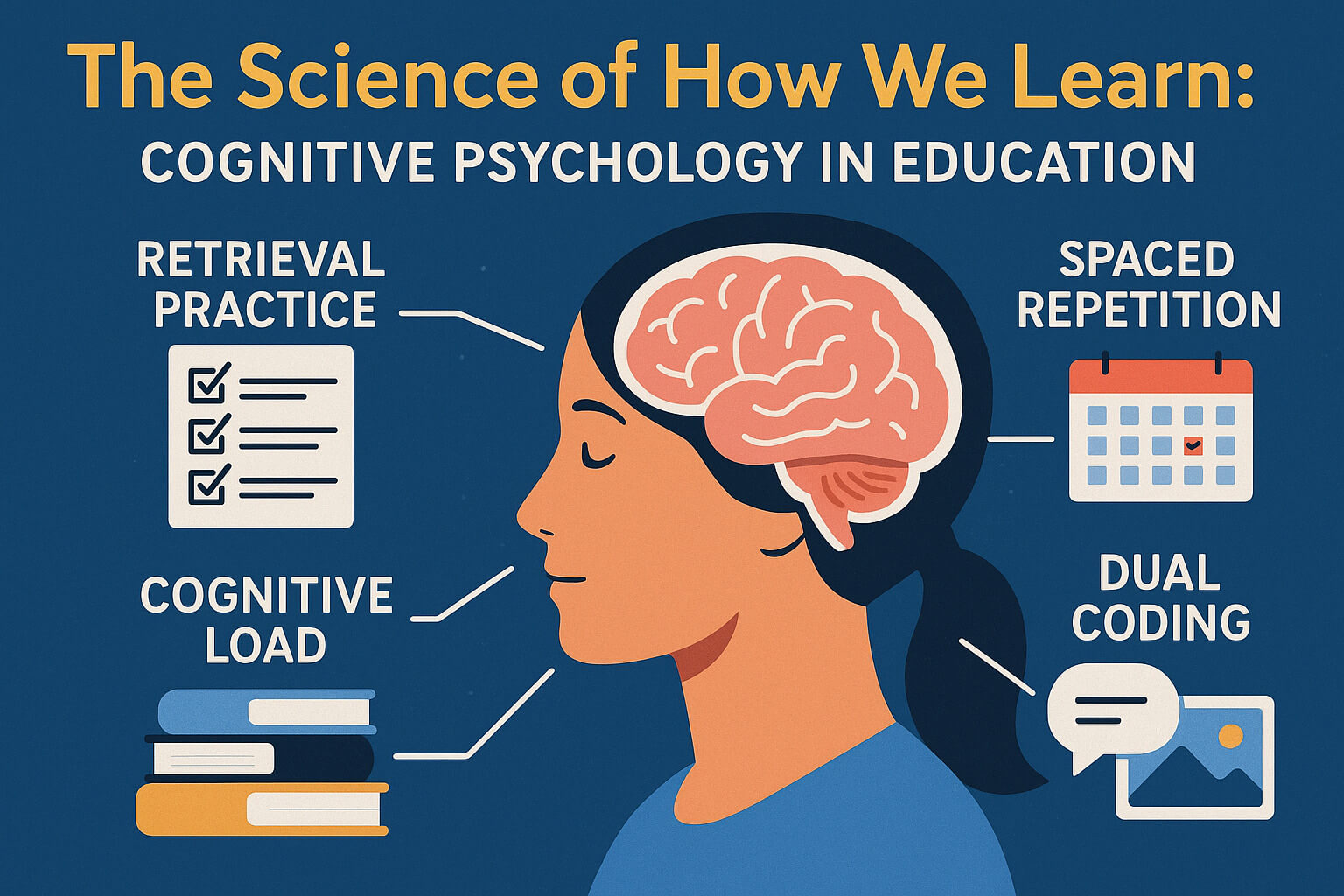
Cognitive psychology, the study of mental processes such as memory, perception, and problem-solving, has profoundly influenced how we understand learning in educational settings. It explores how the brain processes information, how we retain knowledge, and what strategies enhance long-term understanding. For example, cognitive load theory suggests that the brain can only process a limited amount of information at once, which is why breaking lessons into smaller chunks (known as “chunking”) helps improve comprehension. Similarly, research shows that retrieval practice—actively recalling information—strengthens memory more effectively than passive review.
One of the most impactful insights from cognitive psychology is the value of spaced repetition, which involves reviewing material over increasing intervals of time. This method takes advantage of the brain’s natural forgetting curve and helps encode knowledge into long-term memory. Additionally, dual coding theory emphasizes combining words with visuals to improve learning outcomes, highlighting the power of multi-sensory instruction. Educators who apply these findings can design lessons that align with how the brain actually learns, moving beyond rote memorization to deeper, more meaningful understanding. In essence, the science of learning is not just theoretical—it provides practical, research-backed strategies that can transform education.